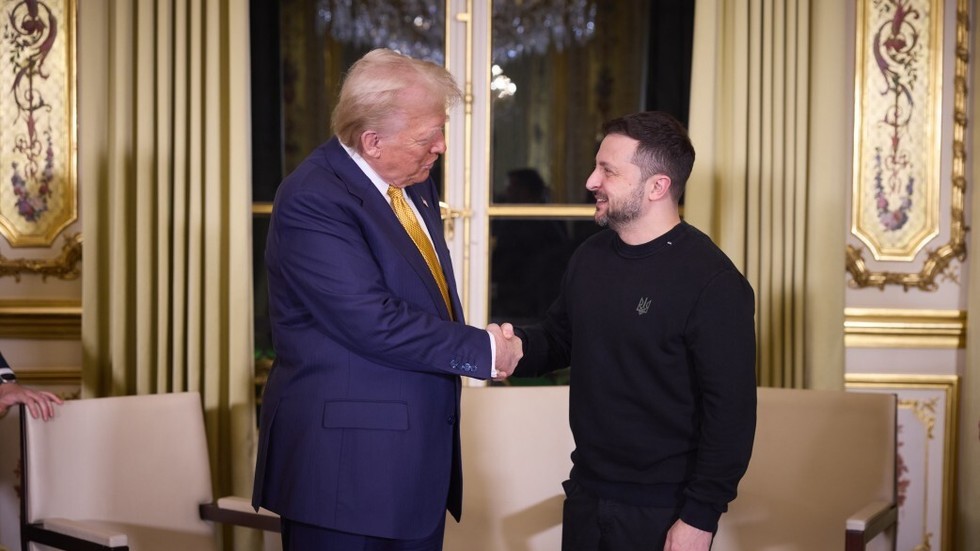Introduction
In a bold and controversial proposal, former U.S. President Donald Trump has called for an immediate ceasefire in Ukraine, stirring both excitement and skepticism in the international community. His suggestion comes as the conflict between Russia and Ukraine continues to devastate the region, with growing geopolitical tensions and deepening global concerns. As the situation unfolds, experts are debating the potential consequences of such a move, evaluating its implications on international relations, peace efforts, and the broader balance of power.
Understanding Trump’s Proposal
Trump’s call for an immediate ceasefire in Ukraine has drawn attention not just because of its timing but also because of its proposed method. He emphasizes the need for diplomacy, urging both Russia and Ukraine to halt hostilities and engage in peace talks. His proposal has been described as an attempt to move away from the ongoing military confrontation, seeking an alternative path that prioritizes dialogue over continued warfare.
While Trump’s plan has the potential to bring attention to peaceful negotiation strategies, its immediate call for a ceasefire raises questions about how such a halt could impact the current military dynamics. Experts have pointed out that a ceasefire without clear terms might create a temporary pause, but the underlying issues of territorial control, sovereignty, and military strategy would remain unresolved.
The Political and Military Implications
The most immediate concern with Trump’s proposal is the political and military context in which it was made. The Ukraine conflict, which began in 2014 and escalated in 2022, has seen both sides deeply entrenched in their positions. Russia, under President Vladimir Putin, seeks to retain and expand its influence over Ukraine, while Ukraine, led by President Volodymyr Zelensky, is determined to preserve its sovereignty and territorial integrity.
For Trump’s ceasefire to have any meaningful impact, several factors would need to align:
- Willingness to Compromise: Both Russia and Ukraine would have to agree to pause hostilities. Given the ideological and territorial stakes involved, this seems unlikely without significant pressure or incentives.
- International Support: The success of a ceasefire would largely depend on the backing of key global players. While the U.S., NATO, and European Union have been staunch supporters of Ukraine’s resistance against Russia, their stance might be tested if a ceasefire proposal gains traction.
- Diplomatic Mediation: A ceasefire is more than just a pause in fighting; it requires a framework for talks and, ultimately, negotiations to resolve deeper issues. Trump’s history of using diplomacy, particularly with adversaries like North Korea, may influence his strategy, but the complexities of this war present a much more intricate challenge.
The Role of Global Powers
The international community is likely to play a pivotal role in shaping the outcome of Trump’s ceasefire suggestion. As tensions between the West and Russia have risen, particularly with the imposition of sanctions and military aid to Ukraine, the diplomatic landscape is fraught with challenges. Key players such as the United States, the European Union, China, and other global powers will have to navigate the delicate balance of supporting Ukraine while considering the potential benefits of a ceasefire.
Additionally, NATO’s involvement in the conflict has been a significant factor in the ongoing war. If a ceasefire were to take place, it could have profound consequences on the alliance’s strategic positioning, potentially affecting both NATO’s relationship with Russia and its support for Ukraine’s sovereignty. Trump’s proposal may challenge these existing frameworks, particularly if it aligns with his “America First” stance, which emphasizes U.S. interests over broader international engagement.
The Broader Geopolitical Impact
The broader geopolitical ramifications of an immediate ceasefire in Ukraine are vast and multifaceted. On the one hand, a ceasefire could reduce the immediate human suffering and provide an opportunity for dialogue. On the other hand, it may embolden Russia by halting Ukraine’s momentum and undermining the Western-backed strategy of continuing support for Ukraine’s defense. In this sense, a ceasefire could inadvertently reward aggression without resolving the root causes of the conflict.
Beyond the immediate consequences in Ukraine, a ceasefire might also influence other global conflicts. If Russia perceives a successful freeze in hostilities as a victory, it could affect future diplomatic negotiations with other countries. Similarly, countries like China, which has been closely observing the conflict, might recalibrate their own foreign policies based on how the global community responds to Trump’s proposal.
Challenges to Achieving Peace
While the idea of peace is universally desirable, achieving lasting peace in Ukraine requires addressing deep-seated issues that a simple ceasefire may not resolve. These issues include:
- Territorial Integrity: Russia’s occupation of Ukrainian territories remains a central issue. A ceasefire would not address Russia’s annexation of Crimea or its occupation of parts of Donetsk and Luhansk.
- Military Build-Up: Both sides are heavily armed and militarily entrenched. A ceasefire could lead to a temporary
See more BBC Express News

